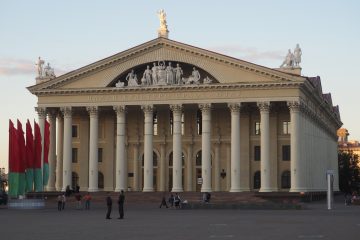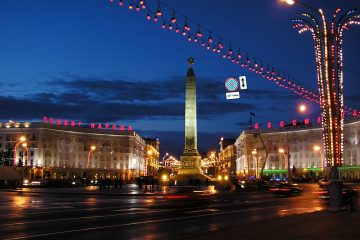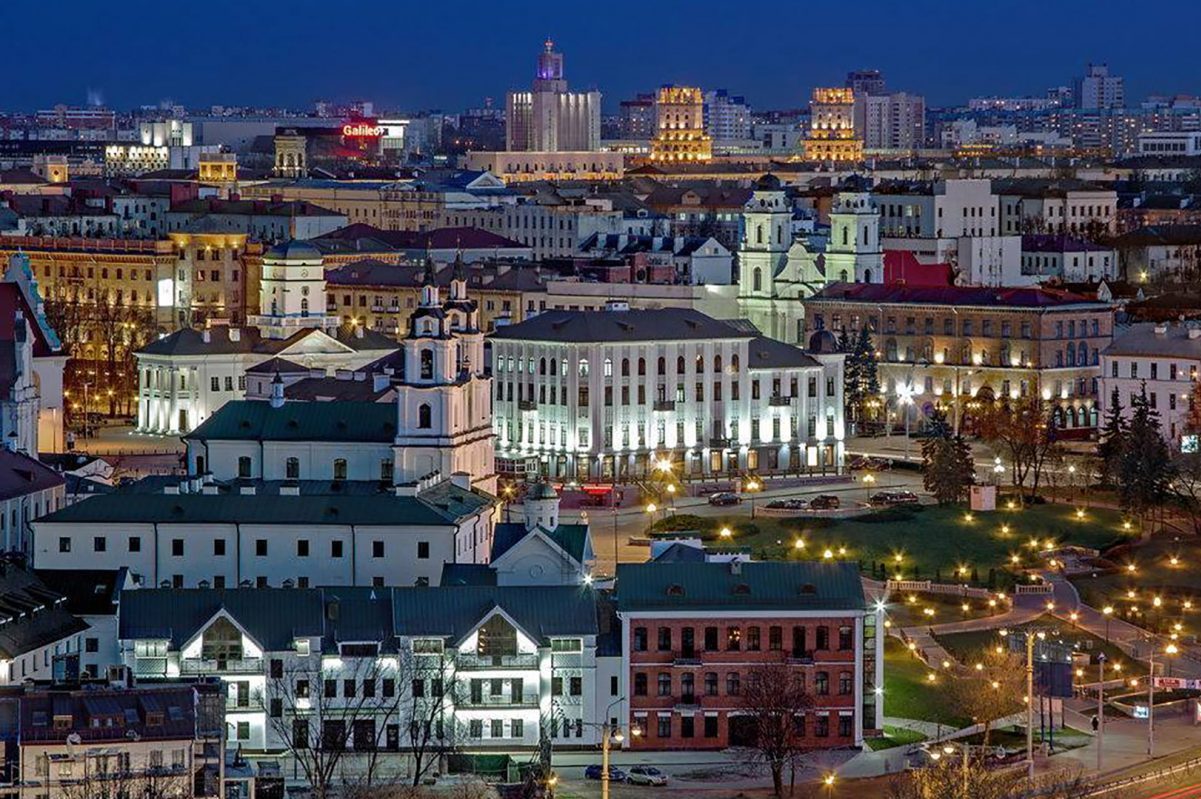2011 Strategy report on the situation in Belarus
The situation
The economic and financial crisis in Belarus-a consequence of the planned economy and the decreasing level of Russian subsidies-has jeopardized the “social contract” between the population, on the one side, and the president, as the guarantor of economic and social stability and gradual improvement, on the other. Against this economic/social background, many people in the country put up the various infringements of internationally guaranteed human and civil rights. Now though, dissatisfaction is on the rise among the population, as is solidarity with the victims of persecution. The regime dreads the uprising that has long been on the minds of many Belarusians. It intends to forestall that uprising by increasing repression. Lukashenko has been pressuring his partners in the “Collective Security Treaty Organization (CSTO)”, an alliance whose members include Russia, Armenia, Kazakhstan, Kirgizstan, Tajikistan and Uzbekistan in addition to Belarus, to agree on a strategy for collective intervention against internal uprisings.
The regime is attempting to use administrative resources to overcome the consequences of the economic and financial constraints. The Russian-dominated Eurasian Economic Community has granted a major loan. Russian loans are being tied to privatization requirements; new IMF loans remain a vague hope that is unlikely to be realized, given the continuing repression.
To retain power, the president has been scaling up repressive activities. He has been criticized for his strong-arm tactics by Moscow, as well as by the West. Lukashenko’s vulnerability is a welcome development for Moscow. The exposure of his weaknesses has become a routine item on the Russian media’s daily agenda. Moscow is easing conditions for Belarusians to take up employment in Russia. Belarusian circles in Moscow are making plans for the future. But in view of the Belarusian population’s increasingly negative attitude towards corporate acquisitions in Belarus by Russian firms, Lukashenko’s potential successors are unlikely to want to let themselves be pulled “into the Russian camp” without putting up considerable resistance.
Within the multilateral framework of the Eastern Partnership, the European Union is aiming for developments and activities in Belarus that are official in character and firmly rooted in society, despite the unsatisfactory internal developments. It does, though, avoid the appearance of mutual trust in bilateral relations. However, there can be no new beginning without the release of all political prisoners. It is essential that the proceedings against the leaders and staff of opposition organizations give rise to no legally relevant restrictions, e.g. when registering as candidates for elections.
In view of the continuing exacerbation of the situation in Belarus, Menschenrechte in Belarus e.V. considers the naming of a special representative by the European Union and by certain national governments for cooperation with the civil society in Belarus to be the order of the day (see Section II – Proposals for specific measures)
Unspoken, but hanging in the air, is the idea of another “horse trade”: financial assistance in exchange for setting political prisoners free. Lukashenko has been holding out the prospect of such a release and issuing imprecisely worded invitations to a Public Round Table with civil society, with participation from abroad.
Sanctions – It is understood that the sanctions targetting top regime officials and the state-owned companies should concentrate on companies led by prominent Lukashenko partisans. Consistent bans on enterzing the European Union should be imposed on governmental officials who support the repressive activities targetting Belarusian citizens who have taken a stand for their fundamental rights, and shouldered responsibility. Neither western institutions nor national agencies should issue any loans so long as there are political prisoners in Belarus and until sustainable improvement has been made in the human rights situation there.
After having earned national and international appreciation through the Easter Partnership, the political and human rights structures of Belarusian civil society have been substantially weakened by the repressive measures that followed 19 December 2010 and by the access their governement gained to information about bank accounts held by non-governmental organizations in Warsaw and Vilnius. That part of the civil society active in human rights issues has, to a great extent, been deprived of its capacity for politically relevent action. The same applies to the grass-roots organizations that engaged in systematic election observation using domestic structures in recent years.
Proposals for specific measures
In the complicated environment of a strict regime, ensuring that EU and its member states have an active policy in place, above all towards Belarusian civil society, has taken on even greater importance that it had in past years. For that reason, Europe should appoint a European Union Special Representative, to intensify and expand cooperation with civil society in Belarus, the same should occur at the national level. This is called for both for policy and organizational reasons and represents the most important of the measures required in order to achieve a coherent, effective and sustainable policy for the European institutions and national governments, as well as for NGOs in Europe.
It is also necessary that more effective coordination be used to provide Belarusian citizens with effective protection outside of their country against attacks and manipulation by state and state-controlled Belarusian agencies.
It is a matter of great urgency that these steps should be taken and augmented by measures in other areas, specifically the following:
- waiving of visa fees and creation of a visa exemption
- support for the Eastern Partnership, above all provision of additional funds for the Civil Forum)
large-scale expansion of employment and educational opportunities for young Belarusians - support for domestic election observation (ODIHR is being weakened by political activities of the Russian Federation at upper and topmost levels)
- support for independent media
- Belarus Conference in Berlin, beginning with a conference on the identity of Belarus in the past, present and future
- publications on the topic “Belarus and the EU”
- publications on the topic “Human rights in Belarus”
- active support of the European Humanities University (Minsk/Vilnius) – EHU by the Federal Republic of Germany


